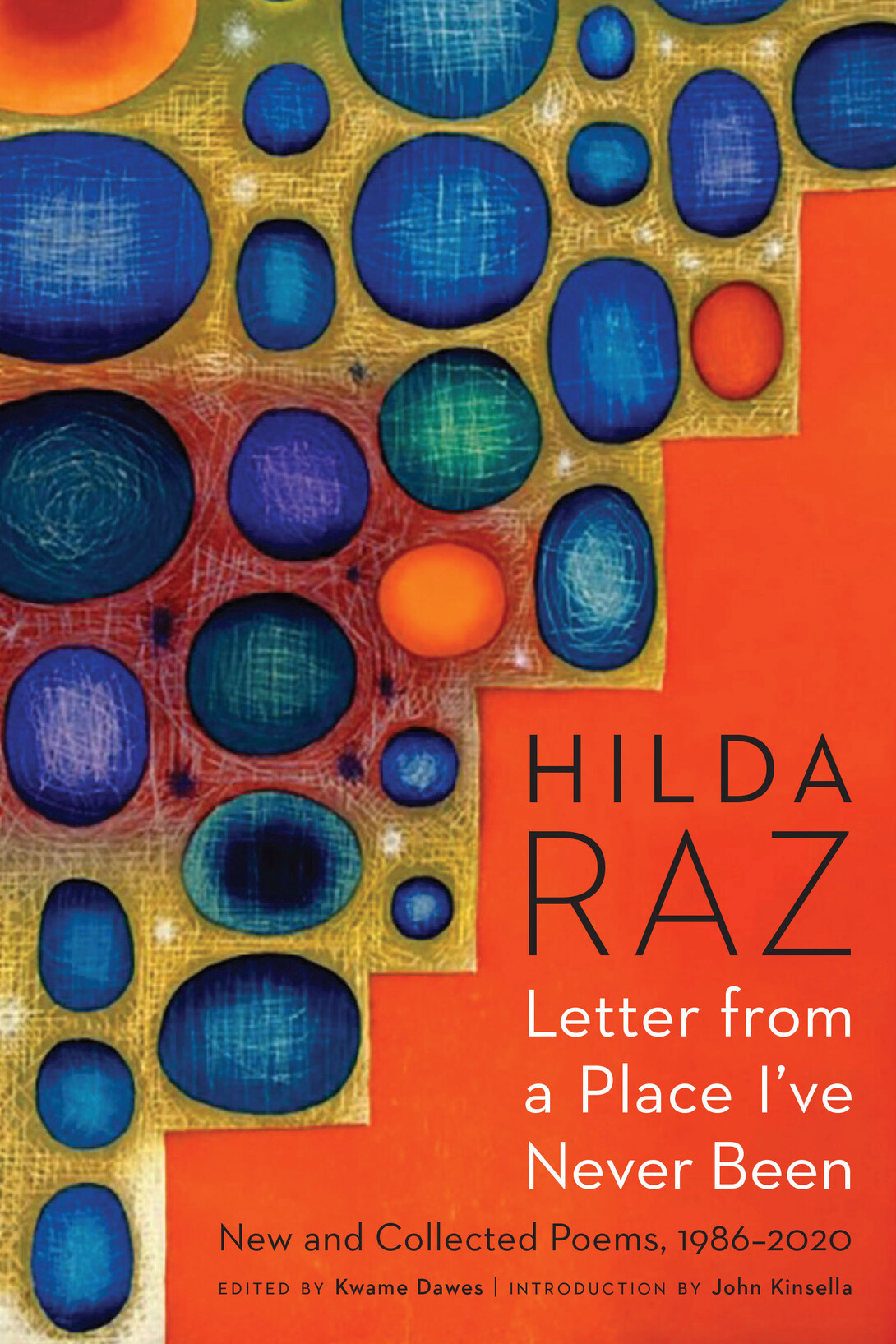
As well as demonstrating her virtuosity, a newly-published Hilda Raz poetry collection pays tribute to her contributions to Nebraska’s cultural landscape as longtime editor of the nationally regarded Prairie Schooner literary quarterly.
“Letter from a Place I’ve Never Been: New and Collected Poems, 1986-2020” was edited by Kwame Dawes, himself a lauded poet who succeeded Raz as Prairie Schooner editor in 2011. It was Dawes who proposed the book, an idea that received an enthusiastic response from the University of Nebraska Press and Raz herself.
“She is a big figure in American poetry and in the business of American poetry,” Dawes said. “We owe her a lot as a university and a state. If we value poetry in the world, we should give her a tremendous amount of credit.”
A member of the English and women and gender studies faculty, Raz spent more than 40 years at the University of Nebraska–Lincoln, including 23 years as editor of the Prairie Schooner. Now approaching its 100th year of continuous publication, the journal has had only six editors in its history.
Raz didn’t want to leave Boston for Nebraska back in 1965. But the state came to play a major role in her career and her creativity.
“I immediately loved the landscape, the history and the distinction of the university as a nurturer of excellence in its faculty and students,” she said in a recent email interview from her present home in Placitas, New Mexico. “During my long residence, I did a lot of my best work as a writer, a teacher and a literary entrepreneur.”
The book’s cover, designed by Nathan Putens, features the print “Verse from Macrocosmica,” by Karen Kunc, professor emeritus of art. Its introduction is written by Australian poet and critic John Kinsella, and its title is drawn from an enigmatic poem from Raz’s “Trans” collection, originally published in 2001. As Dawes describes it in his editor’s note, the poem captures a point of stillness between “time present, time past and time future.”
“Hilda has been incredibly influential in making UNL a place of tremendous creativity,” said Donna Shear, director of the University of Nebraska Press. “Her stewardship of Prairie Schooner, her own beautiful poetry, and Hilda herself as a phenomenal person, have been monumental to this university. It was a great honor for the Press to be able to publish her new and collected poems, as well as to reissue her other books of poetry.”
Raz served as a poetry reader, staff assistant, contributing editor, poetry editor and twice as interim editor before she became the Prairie Schooner’s fifth editor in 1987. Now 83, Raz continues to work, serving as series editor for the Mary Burrett Christiansen Poetry Series for the University of New Mexico Press; poetry editor of Bosque Press and ABQinPrint; and on the board of directors of Arbor Farm Press. She continues to write and teach.
Dawes, the Prairie Schooner’s sixth editor, did not know Raz personally when he accepted the position in 2011, but he knew her by reputation. Today, he credits Raz for resolving financial issues that had emerged in the 1980s and for working with a key donor, Glenna Luschei, to establish an endowment to underwrite the magazine.
“She stabilized the journal and protected its status of national importance,” Dawes said.
Raz said the magazine’s reputation was never in jeopardy, but she increased the magazine’s size and visibility and the diversity of its contributors.
“With Kwame Dawes at the helm, the magazine goes on to greater visibility because of his prominence as a writer, critic and literary star,” she said. “Prairie Schooner is a venerable and international literary institution now as ever before.”
Indeed, earlier this year, Dawes was awarded the biennial PEN/Nora Magid Award for his editorship of the journal.
“Letter from a Place I’ve Never Been” features more than 300 poems, from six collections completed since 1986. About 40 are new poems or those not previously published in a collection. Many of the place names in Raz’s poetry will be familiar to Nebraska readers, such as Benedict, Sandy Creek, the Sandhills, Stella and Lincoln. Inspiration for many of the poems came during her work as an artist-in-residence teaching at schools throughout the state as part of a Nebraska Arts Council program.
Honed and imagined, as poets do, the experiences Raz creates in her poems feel uncomfortably true: marriage, sex, parenthood, divorce, hospitalization, cancer, aging, loved ones, favorite dresses, travel and former homes. One example describes two women washing dishes together while heavily pregnant. Another listens to an NPR interview while passing through the automatic car wash. The “Trans” collection of poems includes works written in response to her son Aaron’s transition to his transgender identity.
Among the new poems, “Dear God” reflects on the miracles of life, even in a desert; “Risk” touches upon the routine dangers faced by the elderly; “Echo” marvels at the body’s surprising ability to heal after hip replacement surgery; “Nobody Teaches Life Anything” wryly muses about life, learning and death; “Diaspora” is a pantoum describing an ominous departure on a journey; and “Spring Again, Rural Nebraska” deftly sketches the people and landscape encountered during a visiting teaching assignment.
“These are all poems that introduce us to the ways in which Raz is generous with her experiences in life, and the ways in which her poems manage to be rooted in place, history and experience,” Dawes said. “Of course, they are all elegantly crafted lyrics.”
“Letter from a Place I’ve Never Been,” 472 pages, was published in April by University of Nebraska Press.








